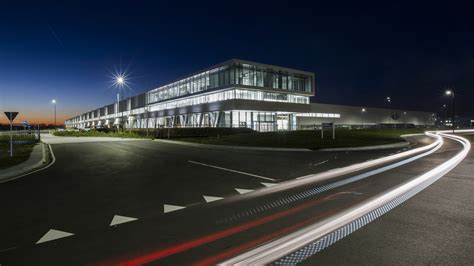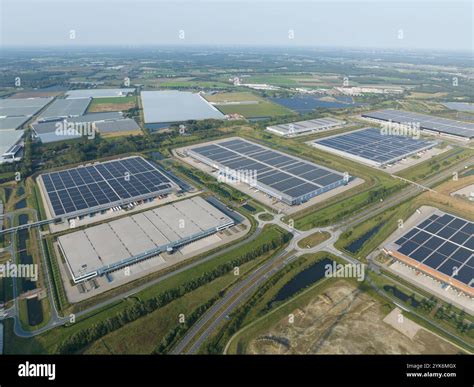michael kors venlo distribution center | venlo distribution center
$115.00
In stock
The Michael Kors Venlo Distribution Center, located in the strategically vital region of Venlo, Netherlands, serves as a pivotal hub in the global supply chain for the renowned luxury fashion brand. This facility not only streamlines the movement of goods across Europe and beyond, but it also represents a significant investment in innovation and sustainability within the logistics sector. Recently, the Venlo Distribution Center achieved another milestone, solidifying its position as a leader in the industry by becoming a founding partner of Supply Chain Valley. This partnership underscores Michael Kors' commitment to collaborative development and the advancement of supply chain practices within the region.
This article delves into the operations, strategic importance, and future aspirations of the Michael Kors Venlo Distribution Center. We will explore its role in the broader Michael Kors distribution network, its contribution to the local economy, and its forward-thinking approach to sustainability and technological integration. Furthermore, we will examine the significance of its partnership with Supply Chain Valley and what this alliance means for the future of logistics in the region.
The Strategic Importance of Venlo for Michael Kors
Venlo's geographical location makes it an ideal logistics hub for companies seeking to efficiently distribute goods throughout Europe. Situated near the German border, and with excellent connections to major European cities via road, rail, and water, Venlo offers unparalleled access to key markets. This strategic advantage was a crucial factor in Michael Kors' decision to establish its distribution center in the region.
The Venlo Distribution Center acts as a central point for receiving, sorting, storing, and distributing Michael Kors products, including apparel, accessories, footwear, and other luxury goods. From this location, merchandise is shipped to retail stores, wholesale partners, and directly to consumers across Europe, the Middle East, and Africa (EMEA). The efficiency of the Venlo facility is critical to ensuring that Michael Kors products reach their destinations quickly and reliably, maintaining the brand's reputation for quality and customer service.
Inside the Michael Kors Venlo Distribution Center: Operations and Technology
The Michael Kors Venlo Distribution Center is a state-of-the-art facility equipped with advanced technologies to optimize its operations. While specific details regarding the internal workings of the center are proprietary, certain general principles and industry best practices can be inferred.michael kors venlo distribution center
* Automated Sorting and Handling Systems: The center likely employs automated sorting systems that utilize barcode scanning, RFID technology, and conveyor belts to efficiently process incoming and outgoing shipments. These systems minimize manual handling, reduce errors, and accelerate the flow of goods through the facility.
* Warehouse Management System (WMS): A sophisticated WMS is undoubtedly at the heart of the distribution center's operations. This software system manages inventory levels, tracks the movement of goods within the warehouse, optimizes storage space, and generates reports to provide real-time visibility into the supply chain.
* Order Fulfillment Technology: The center likely utilizes advanced order fulfillment technology to efficiently pick, pack, and ship customer orders. This may include pick-to-light systems, voice-directed picking, and automated packaging solutions.
* Data Analytics and Optimization: The Michael Kors Venlo Distribution Center likely leverages data analytics to identify areas for improvement and optimize its operations. By analyzing data on inventory levels, order fulfillment times, and shipping costs, the center can make informed decisions to enhance efficiency and reduce costs.
The integration of these technologies allows the Michael Kors Venlo Distribution Center to handle a high volume of orders with speed and accuracy, ensuring that customers receive their products in a timely manner. The ongoing investment in technology is a testament to Michael Kors' commitment to continuous improvement and innovation within its supply chain.
Sustainability Initiatives at the Venlo Distribution Center
Michael Kors recognizes the importance of sustainability and is committed to reducing its environmental impact throughout its operations. The Venlo Distribution Center plays a crucial role in supporting these sustainability goals.
* Energy Efficiency: The center likely incorporates energy-efficient lighting, heating, and cooling systems to minimize its energy consumption. This may include the use of LED lighting, high-efficiency HVAC systems, and renewable energy sources such as solar panels.
* Waste Reduction: The distribution center likely implements comprehensive waste reduction programs to minimize the amount of waste sent to landfills. This may include recycling programs, composting initiatives, and efforts to reduce packaging materials.
* Sustainable Transportation: Michael Kors likely works with transportation providers that prioritize sustainability. This may include the use of fuel-efficient vehicles, alternative fuels, and optimized delivery routes to reduce carbon emissions.
* Green Building Practices: The design and construction of the Venlo Distribution Center likely incorporated green building principles, such as the use of sustainable materials, water conservation measures, and indoor air quality improvements.
By implementing these sustainability initiatives, the Michael Kors Venlo Distribution Center is contributing to a more environmentally responsible supply chain. This commitment to sustainability aligns with Michael Kors' broader corporate social responsibility goals.
The Michael Kors Venlo Distribution Center as a Founding Partner of Supply Chain Valley
The announcement that the Michael Kors Venlo Distribution Center is a founding partner of Supply Chain Valley marks a significant milestone for both organizations. Supply Chain Valley is an initiative aimed at fostering collaboration and innovation within the logistics sector in the Venlo region. It brings together businesses, research institutions, and government agencies to address key challenges and opportunities facing the industry.
Additional information
| Dimensions | 8.9 × 3.4 × 3.1 in |
|---|









